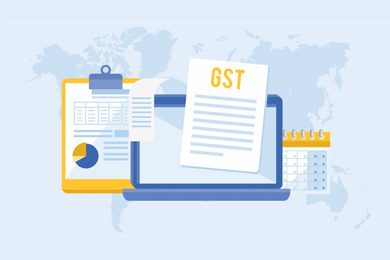



 Tech & IT
Tech & IT
 Business
Business
 Coding & Developer
Coding & Developer
 Finance & Accounting
Finance & Accounting
 Academics
Academics
 Office Applications
Office Applications
 Art & Design
Art & Design
 Marketing
Marketing
 Health & Wellness
Health & Wellness
 Sounds & Music
Sounds & Music
 Lifestyle
Lifestyle
 Photography
Photography
More Learnfly
Business Solution Become an InstructorFinancial modeling is the creation of mathematical representations (models) of financial scenarios. It involves using data and assumptions to build dynamic models for forecasting, budgeting, and decision-making, aiding businesses in evaluating potential outcomes and making informed financial strategies.

By : Anurag Singal
By Anurag Singal | MBA IIM Ahmedabad| CA| 10+ yrs across MNCs | Now walk into your dr...
4.0 13970
3:58:19 hrs 23 lectures All Level

By : Blair Cook
Learn to develop a financial projection/forecast including an income statement, balan...
4.7 75213
1:32:15 hrs 8 lectures Intermedite Level

By : Manish Gupta
Understand hotel/s standard profit & Loss statements, how to read and analyse them. W...
4.8 73326
2:58:18 hrs 34 lectures Intermedite Level












Learn more topics in various categories at one place. Explore unlimited courses in other categories and up-skill yourself today.

 Jazeb Akram
Jazeb Akram 4.2 771161 Beginner Level

 John Hedengren
John Hedengren 4.1 569067 All Level

 Ranjan Pandey
Ranjan Pandey 4.1 346732 All Level

 Muhammad Ahsan Pervaiz
Muhammad Ahsan Pervaiz 4.2 101340 All Level

 Pieter Vliegenthart
Pieter Vliegenthart 4.6 100920 All Level

 Jerome P.
Jerome P. 4.8 100883 All Level

 Senol Atac
Senol Atac 4.9 100096 All Level

 Vikas Munjal
Vikas Munjal 4.8 100067 Beginner Level

 Avinash A
Avinash A 4.8 100018 All Level

 Biz Facility
Biz Facility 6 Lectures Intermedite

 Biz Facility
Biz Facility 6 Lectures Intermedite

 Biz Facility
Biz Facility 5 Lectures Intermedite

 Biz Facility
Biz Facility 4 Lectures Intermedite

 Biz Facility
Biz Facility 4 Lectures Intermedite

 Biz Facility
Biz Facility 6 Lectures Intermedite
.jpg)
 Prabh Kirpa Classes
Prabh Kirpa Classes8 Lectures Intermedite

 AWESOME EMMANUEL
AWESOME EMMANUEL57 Lectures Intermedite

 AWESOME EMMANUEL
AWESOME EMMANUEL42 Lectures Intermedite
.jpg)
 Piyush Arora, CFA, CAIA
Piyush Arora, CFA, CAIA16 Lectures Intermedite

 LEMMY FRANCISCO KAWONGA
LEMMY FRANCISCO KAWONGA 46 Lectures Intermedite

 LEMMY FRANCISCO KAWONGA
LEMMY FRANCISCO KAWONGA 16 Lectures Intermedite
.png)
 CA Kuldeep Sharma
CA Kuldeep Sharma32 Lectures Intermedite
.jpg)
 Kiran Beldar
Kiran Beldar8 Lectures Intermedite
.jpg)
 Kiran Beldar
Kiran Beldar8 Lectures Intermedite
.jpg)
 Kiran Beldar
Kiran Beldar8 Lectures Intermedite
.jpg)
 SONU THOMAS
SONU THOMAS26 Lectures Intermedite
.jpg)
 SONU THOMAS
SONU THOMAS10 Lectures Intermedite
.png)
 CA Kuldeep Sharma
CA Kuldeep Sharma16 Lectures Intermedite
.jpg)
 Zenith Academics
Zenith Academics55 Lectures Intermedite

 Zenith Academics
Zenith Academics18 Lectures Intermedite

 Zenith Academics
Zenith Academics39 Lectures Intermedite

 Veer Tutorial
Veer Tutorial71 Lectures Intermedite

 Graziano Giuseppe Di Capua
Graziano Giuseppe Di Capua27 Lectures Intermedite

 Victor Ogundele
Victor Ogundele81 Lectures Intermedite

 Biz Facility
Biz Facility 5 Lectures Intermedite
 (4).jpg)
 Biswaroop Sen Sen
Biswaroop Sen Sen27 Lectures Intermedite

 Steve Liguori
Steve Liguori19 Lectures Intermedite
.jpg)
 Greg Henriques
Greg Henriques15 Lectures Intermedite
.jpg)
 Shalom Martin
Shalom Martin19 Lectures Intermedite
.jpg)
 Shalom Martin
Shalom Martin11 Lectures Intermedite

 Urs Ravi I Vedanta Educational Academy
Urs Ravi I Vedanta Educational Academy275 Lectures Intermedite

 Daniel Alexandru Petrescu
Daniel Alexandru Petrescu8 Lectures Intermedite

 Daniel Alexandru Petrescu
Daniel Alexandru Petrescu8 Lectures Intermedite

 David Johnson
David Johnson20 Lectures Intermedite

 Daniel Alexandru Petrescu
Daniel Alexandru Petrescu8 Lectures Intermedite

 Daniel Alexandru Petrescu
Daniel Alexandru Petrescu9 Lectures Intermedite

 Daniel Alexandru Petrescu
Daniel Alexandru Petrescu8 Lectures Intermedite

 Daniel Alexandru Petrescu
Daniel Alexandru Petrescu10 Lectures Intermedite

 Daniel Alexandru Petrescu
Daniel Alexandru Petrescu12 Lectures Intermedite

 Daniel Alexandru Petrescu
Daniel Alexandru Petrescu9 Lectures Intermedite
 (1).jpg)
 Daniel Alexandru Petrescu
Daniel Alexandru Petrescu9 Lectures Intermedite

 Daksh Murkute
Daksh Murkute19 Lectures Intermedite

 Dobromir Dikov FCCA, FMVA
Dobromir Dikov FCCA, FMVA55 Lectures Intermedite

 Chester Sky
Chester Sky14 Lectures Intermedite

 Humberto Malaspina
Humberto Malaspina47 Lectures Intermedite

 Accounting is a piece of cake VRN
Accounting is a piece of cake VRN9 Lectures Intermedite

 Steve Liguori
Steve Liguori10 Lectures Intermedite

 Steve Liguori
Steve Liguori14 Lectures Intermedite

 Tawanda Irvine Makoni
Tawanda Irvine Makoni10 Lectures Intermedite

 Tawanda Irvine Makoni
Tawanda Irvine Makoni18 Lectures Intermedite

 Atif Noor
Atif Noor12 Lectures Intermedite

 Anurag Singal
Anurag Singal17 Lectures Intermedite

 Ross Maynard
Ross Maynard12 Lectures Intermedite

 Anurag Singal
Anurag Singal23 Lectures Intermedite

 Blair Cook
Blair Cook10 Lectures Intermedite

 Blair Cook
Blair Cook5 Lectures Intermedite

 Blair Cook
Blair Cook5 Lectures Intermedite

 Blair Cook
Blair Cook7 Lectures Intermedite

 Blair Cook
Blair Cook7 Lectures Intermedite

 Blair Cook
Blair Cook8 Lectures Intermedite

 Blair Cook
Blair Cook28 Lectures Intermedite

 Blair Cook
Blair Cook8 Lectures Intermedite

 Blair Cook
Blair Cook7 Lectures Intermedite

 CA N Raja Natarajan
CA N Raja Natarajan25 Lectures Intermedite

 Manish Gupta
Manish Gupta34 Lectures Intermedite

 Quantic Statistics R spatial analysis
Quantic Statistics R spatial analysis13 Lectures Intermedite

 Ashwini Bissa
Ashwini Bissa14 Lectures Intermedite
Financial modeling is the process of creating a mathematical representation (model) of a company's financial situation. It involves using historical data and assumptions to forecast future financial performance, often presented in spreadsheet software.
Financial modeling is essential for decision-making, valuation, and strategic planning. It helps businesses and investors analyze potential scenarios, make informed projections, and assess the impact of various financial decisions on the organization's performance.
Key components include income statements, balance sheets, cash flow statements, and supporting schedules. Forecasting revenue, expenses, and other financial metrics, as well as incorporating sensitivity analysis and scenario planning, are integral parts of the modeling process.
Technology plays a significant role in financial modeling through the use of specialized software such as Microsoft Excel, financial modeling tools, and data analytics platforms. These technologies enhance efficiency, accuracy, and the ability to handle complex financial scenarios.
Important skills include a strong understanding of finance and accounting principles, proficiency in spreadsheet software, attention to detail, analytical thinking, and the ability to translate business operations into mathematical models. Effective communication of model results is also crucial.





